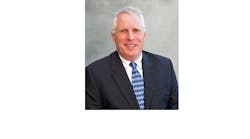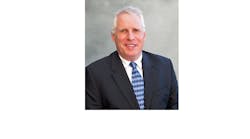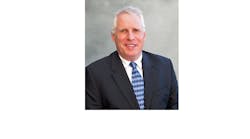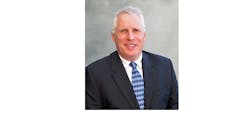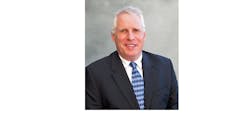The knowledge of your people is your advantage.
From e-mail to e-commerce, from Web sites to data warehouses, from cell phones to laptops, you cannot mistake the considerable focus our industry and our society place on technology these days.
For many of us, that incontrovertible fact has its good points and its bad. We can work faster and better due to technology. At the same time, the myriad technological options available today, each opening a door to new and improved ways of approaching tasks, can become overwhelming and confusing.
At a recent industry gathering, the speaker reaffirmed the central place of the human being--you and I--in the face of this rush to technology. Laurence Prusak, managing principal, IBM Consulting Group, emphasized the continuing importance of people and human contact in business dealings. An award-winning researcher and consultant in the field of information science, he focuses on business innovation and organizational knowledge issues. First and foremost among his findings is one central fact: An organization's collective knowledge is its one true competitive advantage.
When technology levels the playing field, where do the differences come from that bring one firm a competitive advantage over others? Prusak found a clear-cut answer: "What a company knows, how it uses what it knows and how fast it can know something new--these are the only real, sustainable advantages."
Where is the knowledge in an organization? It's largely in people's heads. While facts or data may be written down or compiled in databases, memos, manuals, blueprints and the like, "access to information does not equate with value," he says. It takes insight, creativity and caring to use that information and to make it knowledge.
Prusak studies situational anthropology-that is, how people interact at work. He has set out to answer questions like: Where does the knowledge go when people leave? (Answer: People have to pass on their "knowledge" to others while they work for that company. Aware companies will have provided opportunities for this tricky process.) Or, why would the performance at one branch differ from that at another branch with the same equipment and same systems? (Answer: Individuals at a branch make adaptations, then pass the "better" approach along to others at the branch. "Knowledge is local, contextual and sticky-as in hard to transfer," says Prusak. The challenge is for companies to enable innovators to pass their "adaptations" to others, person to person, not in the form of a memo demanding compliance with a new procedure.)
Prusak notes that computing power raises the premium on good judgment, creativity, sociability--those characteristics that can't be recreated. Furthermore, as social creatures, humans do not think, create, act or innovate alone, Prusak points out. They need social interaction, richness, inter-activity, trust and much more.
The net result comes down to this, according to Prusak: "Organizations that are successful over time pass on what they know human being to human being." A new business model is emerging that places a stronger emphasis on networks (online communities) of people within a company.
Technology enables us to work faster and in a more isolated manner-with a laptop on the road or from a remote office. Technology makes us more productive-capable of doing more in less time. Easily accessible computer databases raise the level of knowable material. But Prusak indicates that it will all fall apart without the human element.
As we design companies and systems for the future, let's look further into this theory of knowledge management, putting people first.



